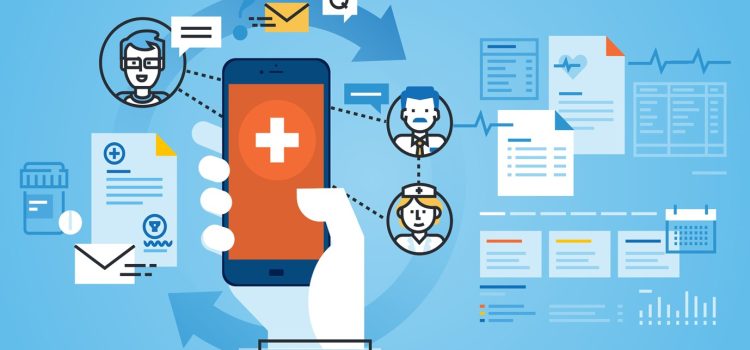
In recent years, the healthcare industry has seen a significant transformation with the adoption of Digital Health Records (DHRs). These records, also known as Electronic Health Records (EHRs), have revolutionized how patient information is stored, accessed, and managed. While the benefits of DHRs are numerous, the transition has not been without its challenges. This article delves into the growth of Digital Health Records, exploring both the advantages they offer and the hurdles that need to be overcome.
The Evolution of Digital Health Records
The concept of digitalizing health records is not new. The initial steps towards electronic record-keeping began in the 1960s, but it wasn’t until the early 2000s that significant advancements were made. The Health Information Technology for Economic and Clinical Health (HITECH) Act of 2009 was a pivotal moment, providing incentives for healthcare providers to adopt EHR systems. This legislation spurred widespread adoption and set the stage for the modern era of Digital Health Records.
Benefits of Digital Health Records
Improved Patient Care
One of the most significant benefits of Digital Health Records is the enhancement of patient care. DHRs provide healthcare professionals with instant access to a patient’s complete medical history, allowing for more accurate diagnoses and personalized treatment plans. This comprehensive view can be crucial in emergency situations where time is of the essence.
Enhanced Coordination and Communication
Digital Health Records facilitate better coordination among healthcare providers. With DHRs, information can be easily shared between primary care physicians, specialists, and other healthcare professionals. This seamless communication ensures that all parties are on the same page, reducing the risk of medical errors and improving overall patient outcomes.
Increased Efficiency and Productivity
The shift to digital records has streamlined many administrative processes, leading to increased efficiency and productivity. Tasks such as scheduling appointments, billing, and managing prescriptions can be automated, freeing up valuable time for healthcare providers to focus on patient care. Additionally, DHRs reduce the need for physical storage space and minimize the risk of lost or misplaced records.
Enhanced Data Security and Privacy
Contrary to the concerns some may have, Digital Health Records can offer enhanced data security and privacy compared to traditional paper records. Advanced encryption methods and access controls help protect sensitive patient information from unauthorized access. Moreover, digital records can be backed up regularly, ensuring that data is not lost in the event of a disaster.
Data Analytics and Research
Digital Health Records provide a wealth of data that can be leveraged for research and analytics. By analyzing trends and patterns in patient data, healthcare providers can identify potential health risks, track the effectiveness of treatments, and make data-driven decisions. This information can also contribute to public health initiatives and policy-making.

Challenges of Digital Health Records
Implementation Costs
One of the primary challenges of adopting Digital Health Records is the initial cost of implementation. The expenses associated with purchasing and installing EHR systems, training staff, and maintaining the infrastructure can be substantial. For smaller healthcare providers, these costs can be a significant barrier to adoption.
Interoperability Issues
While DHRs have the potential to improve coordination and communication, interoperability remains a significant challenge. Different EHR systems may not be compatible with one another, making it difficult to share information between providers. Efforts are being made to standardize data formats and communication protocols, but achieving seamless interoperability is still a work in progress.
Data Security Concerns
Despite the enhanced security measures that Digital Health Records can offer, concerns about data breaches and cyberattacks persist. Healthcare data is a prime target for cybercriminals due to the sensitive nature of the information. Ensuring robust cybersecurity measures and staying vigilant against potential threats is crucial to maintaining patient trust.
User Resistance and Training
The transition from paper to digital records can be met with resistance from healthcare professionals who are accustomed to traditional methods. Additionally, the learning curve associated with new EHR systems can be steep, requiring extensive training and support. Addressing these challenges requires a comprehensive change management strategy and ongoing education.
Data Quality and Accuracy
The accuracy and quality of data in Digital Health Records are paramount. Inaccurate or incomplete information can lead to misdiagnoses and inappropriate treatments. Ensuring that data is entered correctly and consistently requires rigorous data governance practices and regular audits.
The Future of Digital Health Records
Despite the challenges, the future of Digital Health Records looks promising. Advances in technology, such as artificial intelligence and machine learning, have the potential to further enhance the capabilities of DHRs. For example, AI algorithms can assist in identifying anomalies in patient data, predicting health outcomes, and recommending personalized treatment plans.
Moreover, the push towards interoperability and data standardization is gaining momentum. Initiatives such as the Fast Healthcare Interoperability Resources (FHIR) standard aim to create a more connected and cohesive healthcare ecosystem. As these efforts progress, the seamless exchange of information between different EHR systems will become more achievable.
Telemedicine and remote patient monitoring are also set to play a significant role in the future of healthcare. Digital Health Records will be integral to these advancements, enabling healthcare providers to access patient information remotely and deliver care more efficiently.
Conclusion
The growth of Digital Health Records marks a significant milestone in the evolution of healthcare. The benefits of DHRs, including improved patient care, enhanced coordination, increased efficiency, and better data security, are driving their widespread adoption. However, challenges such as implementation costs, interoperability issues, data security concerns, user resistance, and data quality must be addressed to fully realize the potential of Digital Health Records.
As technology continues to advance and efforts to standardize and secure digital health information progress, the future of Digital Health Records looks bright. By embracing these changes and overcoming the associated challenges, the healthcare industry can move towards a more efficient, effective, and patient-centered future.










